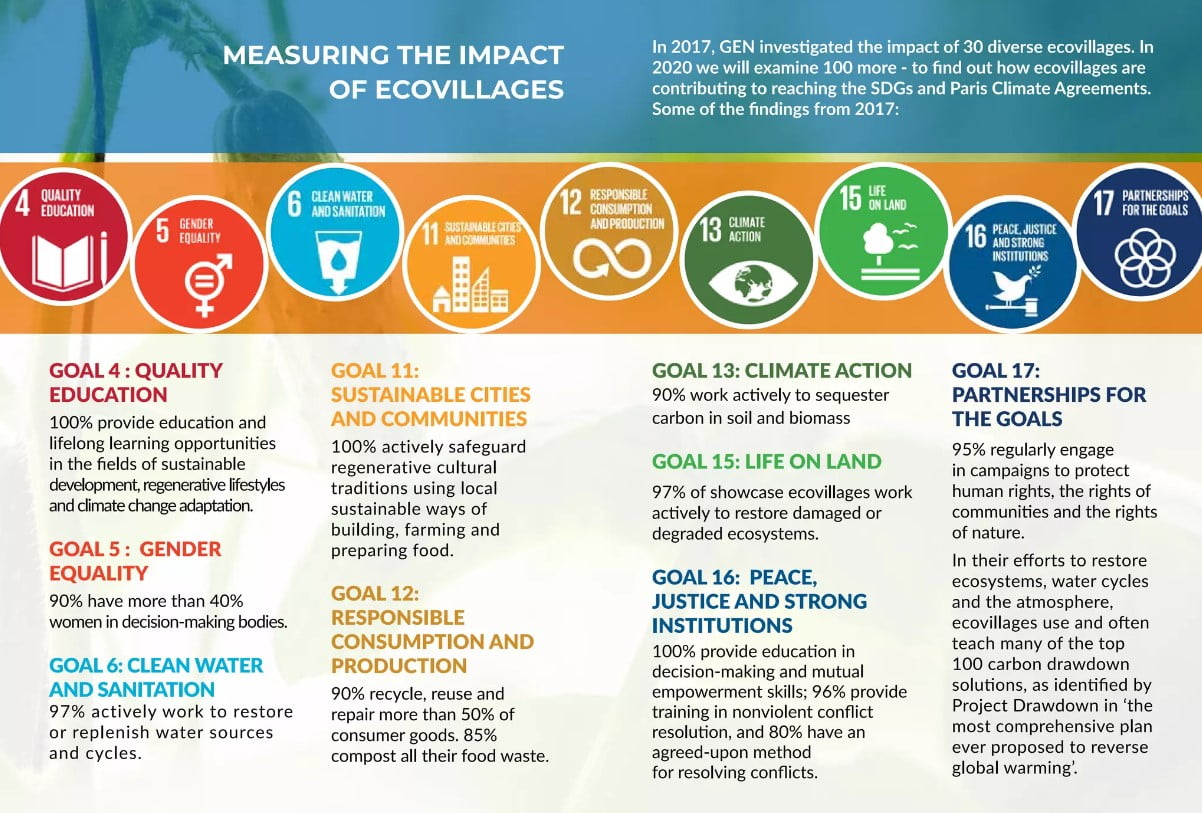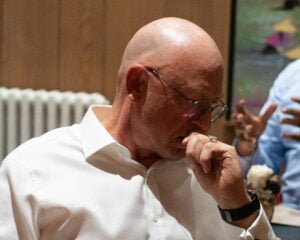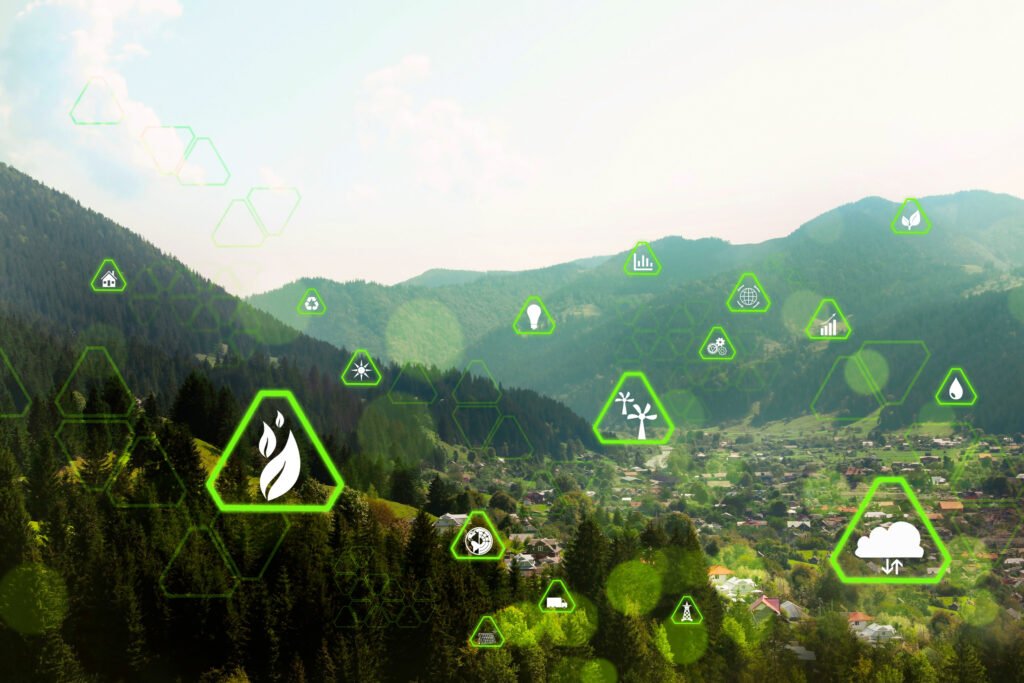People globally are grappling with loneliness, isolation, ageing, education, work insecurity, while struggling to meet spiralling food, rent, energy and water costs. At the same time, we are bombarded with news of climate disasters, war, famine, pandemics, corruption and government failures.
We want to lessen our daily stress, feel safe, cared for, nurtured, secure, surrounded by people we care about and who care about us. Sure, we still want to achieve, be recognised and buy sustainably-sourced reusable stuff. There are options for living that address many of these issues at a grass roots level. We can CHOOSE to live in a gentler, more compassionate way.
I am talking about living in an eco-community and there is a broad set of options to consider. What do we mean by an eco-living? We all lived in traditional villages in our evolution – we had to live sustainably – so they were ecovillages. Industrialisation and the need for a stable, at-hand work force, saw mass migration to the cities. Consumerism saw exploitation begin in earnest. Extended families, village life, community care were replaced by the urban grind. Fifty per cent of people now live in crowded, broken, sprawling city slums.
People continue to live in villages, under huge pressure, but they are surviving, in many places surging back, powered by activism, new ways of living and new technologies. They have become living laboratories, pioneering alternative and innovative solutions. They are often vibrant social structures, vastly diverse, yet united in their actions towards low-impact, high-quality lifestyles. Ecovillages now has a broad definition; maybe an intentional, traditional or urban community that is consciously designing its future through its own participatory processes, aiming to address its own community needs, the current crises, through focusing on one or more of the four areas of regeneration (social, culture, ecology, economy).
Johnathan Dawson, former president of the Global Ecovillage Network, describes five ecovillage principles in his 2006 book Ecovillages: New Frontiers for Sustainability:
- They are not government-sponsored projects, but grassroots initiatives.
- Their residents value and practise community living.
- Their residents are not overly dependent on government, corporate, or other centralised sources for water, food, shelter, power and other basic necessities. Rather, they attempt to provide these resources themselves.
- Their residents have a strong sense of shared values, often characterised in spiritual terms.
- They often serve as research and demonstration sites, offering educational experiences for others.
I have a sixth principle. Eco-villages are complex settlements with local economies offering a range of different services to suit community needs. Developing a local economy is imperative. It is possible to do.
I want to offer some examples of eco-communities that are relevant to us in South Africa. For example;
Health and aged care
Covid-19 illustrated the weaknesses of current aged care facilities in many countries. Some ecovillages have pioneered a whole-systems approach to aged care. My first exposure was at Aldinga Ecovillage in Australia, where I was invited to the bedside of a terminally ill patient. The community had rallied around, offering the opportunity to transition at home, with meals and respite afforded his partner and being surrounded by love and support.
On a larger scale, the Heilhaus (House of Healing) community in Kassel (Germany), works with the circle of life holistically. Its slogan is Birth, Life and Death. Based on a holistic understanding of health, Heilhaus supports people who seek guidance on medical, therapeutic, social and spiritual levels. Cultural events provide opportunities for inspiration and encounters. Heilhaus is a community of over 700 people, living in eco-friendly flats, with dedicated business buildings and a striking community centre. Their economy is built around a midwifery, a school for severely challenged children, a multi-generational palliative care centre and a day clinic, with regular medical practitioners, carers and alternative therapists. A canteen provides organic meals for workers, guests and visitors. Heilhaus runs an ambulance service as well. The community is employed in the business and the centre has a widespread reputation as a place where alternative health and modern science meet.
Rural regeneration
There are still hundreds of thousands of traditional indigenous villages in the world. These communities, themselves already ecovillages, are under huge pressure due to a myriad of factors. Community leaders are increasingly vocal in trying to shift into a regenerative cycle to rebuild their communities. So it is natural for other ecovillages to be deeply focused on regeneration. This is so true for southern Africa, but add to its huge informal settlements.
REDES, on the border of Senegal and Mali, is part of The Great Green Wall, an African-led movement with the inspiring ambition to grow an 8 000km natural wonder of the world across the entire width of Africa. The initiative is already bringing life back to Africa’s degraded landscapes at an unprecedented scale, providing food security, jobs and a reason to stay for the millions who live along its path. REDES is working for the regeneration of the socio-cultural and physical environments of the Sahel to generate wealth for local communities and establish peace and harmony in the region.
This project is currently transforming 41 rural villages, close to the River Senegal. Overall it includes 50 Senegalese villages and 50 Mauritanian rural communities. REDES programmes include running green caravans, implementing community orchards, organising food processing workshops, digging wells for drinking water, building classrooms in villages, cleaning up villages, organising free medical consultations, film projections, conferences, facilitating academic research and offering practical ecovillage design education. They have extended their reach, recently donating trees to Loboudou in Mauritania to support the greening efforts on the side of River Senegal, border between the two countries. These ‘friendship trees’ will help deepen the roots of intercommunity cooperation and transborder ecovillage hub.
Education
Other ecovillages have built their unique value-add around teaching, education, shifting mindsets and behaviours. Offerings may range from practical skills of sustainable farming, green building, how to live together harmoniously, conflict management, conference hosting, collaborative decision making to spiritual awakening. Tlholego Ecovillage near Rustenburg, a well-established ecovillage, has been working with regenerative agriculture for decades and is offering the Permaculture Design Course, the first and fully-booked workshop due in March this year The spectrum is broad. For many people, just having an ecovillage experience is enough to set a person on a new path to living. Research would indicate this works.
A recent study has shown how, in Brazil, exposing students from different disciplines to ecovillage living profoundly shifts their view on how to be sustainable and that it made them think differently.[1]
Run with wolves
Nashira[2] in Colombia, is an ecovillage for women, created to balance the results of a long civil war and its societal impact. Seventy-five per cent of Nashira’s households are headed by women, as they are the main income earners. All administrative decisions are taken by women through consensus. Men who have initiated violent acts against their partners or children have been expelled. There is no crime. Violence against women was eradicated. It is a community with open doors, where women support each other and men have developed a new culture of love and respect for them. Childcare and maintaining the ecovillage are tasks shared through collective work.
The women of Nashira cultivate staple crops using permaculture techniques, fruit trees flourish in the common areas used by the whole community. Some of the cooking uses solar power and the women proudly collect and recycle organic and inorganic waste from the neighbourhood. The recycled plastic, glass and other inorganic materials are used to make products for their own use. They welcome visitors and host conferences. A model for other parts of the world? In our country, with such a high level of gender violence, would this not be an option to consider?
The big smoke – transforming sink holes to green cities
Eco-burbs, cohousing, intentional communities, shared housing, rooftop gardens, home agriculture are all taking hold in a big way. In the industrial setting, they offer new ways of configurating lives, living and community. There is a quiet revolution going on.
Living differently – An alternative future, already here!
Ecovillages and eco-living represent beacons of hope for living differently. A big attraction is belonging and social cohesion. Another attraction is having meaningful work, paid or unpaid. Most often this is through the local economy, that through their own work they create security of food, energy, water and, through participation, a rich social fabric. Local economies are built around the community’s purpose. Villagers/community members are employed in a range of roles. For example, hospitality, workshop delivery, gardening, local industries, feeding guests, bookings, teaching and facility maintenance. Many use systems of work geared around the principles of trust, collaboration and felt fair decisions. Non-violent communications, conflict management and governance are skills many communities invest heavily in.
Local currencies are often created and used. In Australia, Narara ecovillage formed its own community bank, raising more than $20m to fund development of community infrastructure and energy, water security This is empowering for those used to traditional banks.
I would not like to give you the wrong impression that communities of the past offer some magical properties that solve everything. Most were restrictive, closed, patriarchal domineering, with little opportunity for individuals to exercise discretion and freedom of choice. That is why urbanisation has been so attractive, with promises of freedom of expression of growth of new jobs of new careers, of new partnerships, of new different communities. Community is not a magic ingredient that serves to make humanity kinder. What we are seeing, is that the search for community is on again as is interest in leaving city life or reconfiguring urban living.
Figure 1: Measuring the impact of ecovillages in contributing to the UN SDGS.
Source : GEN Annual Report 2019.

Conclusions
There is a growing cry for an alternative life model that increases meaningful employment, reverses unsustainable urbanisation, improves land ownership, provides people with basic security, redresses increasing loneliness, builds caring relationships and restores damaged, vulnerable ecosystems. We need slower, kinder, connected societies. There are so many possibilities for South Africa.
Things to Consider
- Next time you feel like taking a break, visit an ecovillage. Treat yourself to an education of a lifetime – be surprised, delighted and sometimes enlightened.
- If you are living in an ecovillage in South Africa, register your project with the Global Ecovillage Network.
- If you are interested in learning more about eco-urban living, we may run a workshop in Cape Town if there are enough people (20 needed).
- If you want to start a community, look around for others also interested, then organise social outings and events to get to know each other.


Andrew Olivier is a businessman, entrepreneur, concerned citizen, artist and futurist He has started and developed a number of successful companies, all of which continue to operate, some three plus decades later. Andrew has been a pioneer of two ecovillages in Australia – Narara Ecovillage and the Tasman Ecovillage. A member of Council of Elders for the Global Ecovillage Network (GEN) for Asia and Oceania; he was previously a board member of GEN international. He continues to consult to business and is a board development advisor for Fairtrade International. He spends his time between South Africa and Australia. He is starting a new venture, to develop a Centre for Transition in Riebeek Kasteel, in South Africa.

